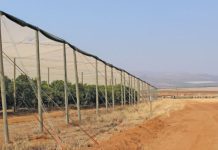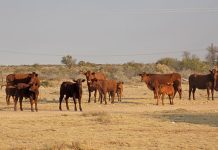Growing vegetables in our backYARDS while waiting for government to come up with a plan is the only way to deal with escalating food prices, agriculture minister Lulama Xingwana said at the recent food summit organised by the Gauteng agriculture department.
“Let each family have a vegetable garden,” Xingwana said. also encouraged wealthier families to “cut their beautiful lawns” and plant vegetables. he summit in Midrand, attended by over 3 000 delegates, was expected to develop short- and long-term solutions to the high food prices.
Xingwana said her department will come up with intervention measures, but did not commit to when this would be. She said in the short term, these would include the creation of social safety nets and, in the long term, ensure the promotion of land and agrarian reform. ight food supplies were intertwined with macroeconomic factors such as increasing oil prices, high input costs, rising inflation, a weakening world banking sector and climate change. Gauteng agriculture MEC Khabisi Mosunkutu came down on companies that were stoking food prices. “We know who they are and what products they sell and they must be dealt with,” he said. – Peter Mashala
Cops produce food to fight crime
vander police in Mpumalanga are addressing both the food needs and physical security of the community via a vegetable patch on the police station’s property. The produce goes to less fortunate members of the community, as identified by the Evander branch of the Policewomen’s Network, who initiated the project.
“When one is hungry, it’s easier to commit crime,” pointed out police spokesperson Constable Sibusiso Mbuli, adding that the garden, which has been operational for about a year, has helped to feed people in the area on several occasions. “We started off by adopting a family where the young boy, who was still in school, was involved in crime,” said Constable Mbuli.
“He was living with his grandmother, so we helped with donations such as food and school uniforms. He has since turned from crime.” n addition, the local police have registered 22 car guards who have helped to curb car theft in the town. “Car theft has been dealt a significant blow and has come down dramatically in the past three months,” said Constable Mbuli. “Businesspeople appreciate the car guards and provide them with food during the day.” – David Steynberg To assist, contact Constable Sibusiso Mbuli on 079 891 5757.
KZN conservation levy boosts partnerships
Community upliftment projects are boosting provincial conservation organisation Ezemvelo KwaZulu-Natal Wildlife’s ongoing attempts to strengthen relationships with the communities neighbouring its formally protected natural areas. The projects were financed by Ezemvelo’s Community Conservation Levy Fund (CCLF), which allocated R130 000 to the Thendele community near the Kamberg Nature Reserve to develop the KwaMaluleko Indigenous Nursery Project. Another R1,3 million was donated to the amaHlubi community near Giant’s Castle Game Reserve to build and operate the Langalibalele Art and Craft Centre and laundry.
Some 120 jobs have been created in the region, half of which are permanent. E zemvelo spokesperson Maureen Zimu said the projects promote the value of conservation to the communities by allowing them to benefit both directly and indirectly from Ezemvelo’s biodiversity conservation mandate. “The art and craft centre will generate income for the community by providing it with a formal outlet to sell community-made products to tourists,” Zimu said. “And the laundry will be contracted to the Ezemvelo resorts of Giant’s Castle and Kamberg and the privately-owned White Mountain Resort, generating even more income.” – Lloyd Phillips
Incentive scheme could benefit agriculture
In the future, Agriculture could benefit from the Enterprise Investment Programme (EIP), said Trade and Industry’s director-general Tshediso Matona. “It could assist in creating investment in rural infrastructure to support agricultural processing,” he explained. L aunched at the beginning of July this year, the EIP replaces the Small and Medium Enterprise Development Programme (SMEDP) which came to an end in 2006. “While no strategy exists to improve investment on the production side of agriculture, we are looking into agroprocessing,” said Tumelo Nkoane, chief director of the EIP.
“A policy is currently being developed and will focus on priorities and problem areas in the industry to correct certain market failures.” umelo Chipfupa, deputy director-general of the Enterprise Organisation at Trade and Industry, said an investment grant of between 15% and 30% of qualifying investment costs would be provided, which would cover the plant, machinery, equipment, commercial vehicles, land and buildings.
“Investment per project is capped at R200 million,” said Chipfupa. he previous SMEDP provided for a maximum investment of R100 million, but, said Nkoane, the was developed when infrastructure and services were less expensive. “It had to change with the times, and because we want to attract foreign investment into the country, R200 million in Europe represents a small- or medium-sized business.” – David Steynberg








